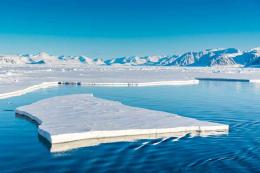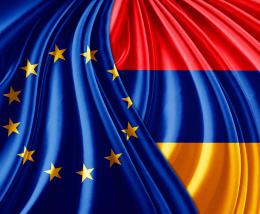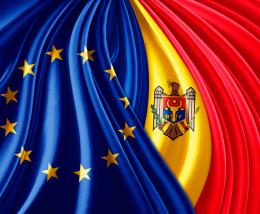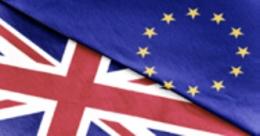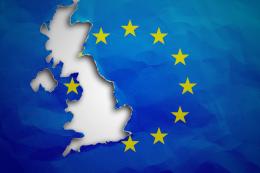European Economic
and Social Committee
Eiropa
Eiropā EESK uztur attiecības ar sociālajiem partneriem un pilsoniskās sabiedrības organizācijām Rietumbalkānos, austrumu kaimiņreģionā, EEZ EBTA valstīs (Islandē, Lihtenšteinā un Norvēģijā), kā arī Apvienotajā Karalistē.
Rietumbalkānu koordinācijas komiteja – pastāvīga EESK iekšējā struktūrvienība – ir svarīgākais instruments EESK darbības koordinācijai šajā reģionā. Rietumbalkānu pilsoniskās sabiedrības forums, kas tiek rīkots reizi divos gados, veido daļu no koordinācijas komitejas darba.
EESK arī divpusēji sadarbojas ar Rietumbalkānu valstīm, ar kurām ir sāktas pievienošanās sarunas, un ar Turciju, izmantojot specializētas struktūras, kas izveidotas, pamatojoties uz asociācijas nolīgumiem starp minētajām valstīm un ES: šo apvienoto konsultatīvo komiteju mērķis ir iesaistīt sociālos partnerus un pilsoniskās sabiedrības organizācijas pirmspievienošanās un reformu procesu uzraudzībā saistībā ar iespējamu pievienošanos Eiropas Savienībai. Katrā struktūrvienībā ir vienāds skaits locekļu no EESK un partnervalsts, un tās sanāksmes notiek parasti vienreiz vai divreiz gadā.
EESK ir arī izveidojusi Austrumu kaimiņattiecību koordinācijas komiteju, kas ir iekšēja struktūra, kuras uzdevums ir uzlabot attiecības ar pilsonisko sabiedrību reģiona valstīs, t. i., Armēnijā, Azerbaidžānā, Baltkrievijā, Gruzijā, Moldovā un Ukrainā.
Galvenie mehānismi sadarbībai ar Armēniju, Gruziju, Moldovu un Ukrainu ir pilsoniskās sabiedrības platformas, kas ļauj gan ES, gan partnervalsts pilsoniskās sabiedrības organizācijām uzraudzīt to, kā tiek īstenoti ES nolīgumi ar šīm valstīm, un izstrādāt ieteikumus attiecīgajām iestādēm. Turklāt 2022. gadā Ukraina un Moldova ir kļuvušas par kandidātvalstīm.
Attiecībā uz Baltkrieviju un Krieviju tiek veidotas attiecības ar tām pilsoniskās sabiedrības organizācijām, kas joprojām darbojas brīvi un no kurām vairums atrodas ES teritorijā. EESK uzskata, ka ir svarīgi turpināt dialogu un vienlaikus cerēt uz labākiem apstākļiem nākotnē.
Eiropas Ekonomikas zona (EEZ) apvieno ES dalībvalstis un trīs EEZ Eiropas Brīvās tirdzniecības asociācijas (EBTA) valstis (Islandi, Lihtenšteinu un Norvēģiju) iekšējā tirgū, kurā preces, pakalpojumi, kapitāls un personas var brīvi pārvietoties. EESK ir iesaistīta Eiropas Ekonomikas zonas konsultatīvajā komitejā, kurā ar EEZ EBTA valstu sociālo partneru pārstāvjiem tiek apspriesti kopīgu interešu jautājumi.
Visbeidzot, EESK ir izveidojusi ES un Apvienotās Karalistes koordinācijas komiteju, kuras uzdevums ir uzraudzīt ES un Lielbritānijas un Ziemeļīrijas Apvienotās Karalistes attiecības no pilsoniskās sabiedrības skatpunkta. Koordinācijas komitejas darbā īpaša uzmanība tiek pievērsta tam, kā tiek īstenots ES un Apvienotās Karalistes noslēgtais izstāšanās līgums un Protokols par Īriju un Ziemeļīriju. Minētā līguma un protokola īstenošanu EESK apspriež regulārās sarunās ar Apvienotās Karalistes pilsoniskās sabiedrības organizācijām. Tāpat koordinācijas komiteja novēro, kā tiek īstenots ES un Apvienotās Karalistes Tirdzniecības un sadarbības nolīgums, uz kura pamata ES un Apvienotās Karalistes koordinācijas komiteja sadarbojas ar ES vietējo konsultantu grupu.
